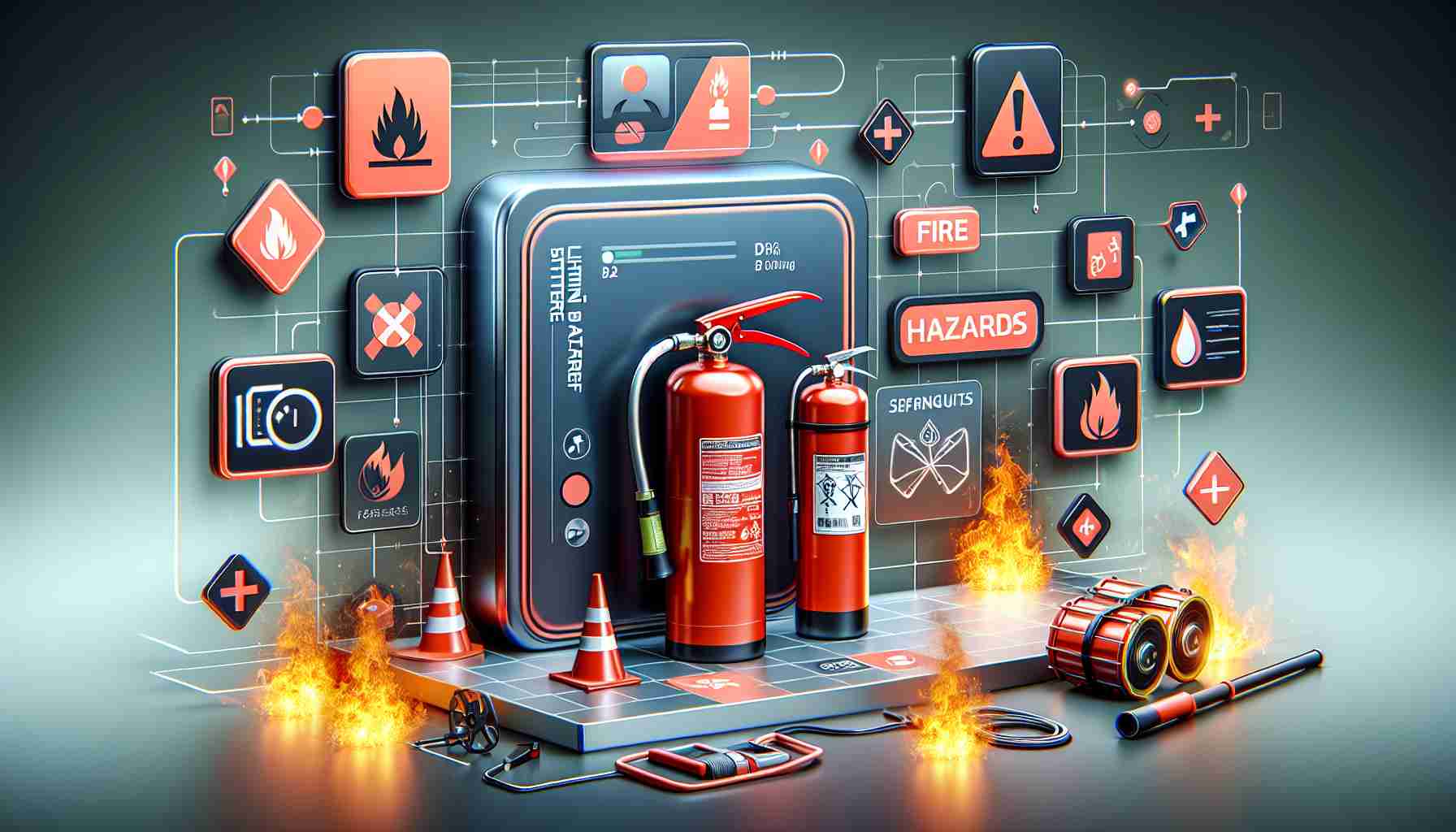The increasingly widespread use of lithium-ion batteries in various electronic devices has brought about a concerning rise in fires across Canada. According to the Canadian Association of Fire Chiefs, incidents involving these rechargeable batteries have surged, prompting alarm from fire services, injury lawyers, and even Health Canada. Although these batteries power a wide range of products, the most common culprits behind these fires are e-mobility devices such as e-bikes, e-scooters, and electronic stand-up one-wheel devices.
Lithium-ion batteries, while efficient power sources, possess a greater risk of explosion and causing fires compared to other battery types. Their vulnerability to damage and improper handling can trigger thermal runaway, an aggressive process that leads to combustion. Fire Chief Ken McMullen warns that such fires are quick to ignite and challenging to extinguish, often overwhelming smaller fire services with their unique characteristics.
One essential factor contributing to these incidents is the use of uncertified batteries. Batteries lacking international safety certifications, such as Underwriter Laboratories (UL) and Conformite Europeenne (CE), pose a higher risk of catching fire. Moreover, overcharging, modifications, and mismatched parts further exacerbate the potential danger. Health Canada has dedicated a page to educating the public about the safe use of lithium-ion batteries, specifically emphasizing the risks tied to improper charging, storage, and modifications.
The portable nature of devices powered by lithium-ion batteries raises concerns about fires in enclosed public spaces, including apartments, elevators, trains, subways, and buses. Personal injury lawyer Nainesh Kotak highlights the catastrophic consequences that can occur when numerous people are exposed to such incidents. Instances of tragedy like apartment fires and subway evacuations have underscored the urgency of addressing this issue.
In response to the growing problem, various jurisdictions have implemented regulations to mitigate the risks. Metrolinx in the Greater Toronto and Hamilton Area has banned the use of lithium-ion batteries without UL or CE certification. Similar measures have been taken in cities like London and New York to restrict the sale and use of e-bikes and e-scooters that don’t meet recognized safety standards.
While the risk of fires caused by uncertified lithium-ion batteries may be relatively low, the potential consequences cannot be ignored. It is imperative for manufacturers, retailers, and consumers to prioritize safety and adhere to established guidelines to prevent these incidents and safeguard public well-being.
The industry surrounding lithium-ion batteries has experienced significant growth in recent years, driven by the increasing demand for electronic devices and e-mobility products. The global lithium-ion battery market is projected to reach a value of $129.3 billion by 2027, growing at a compound annual growth rate of 18.0% from 2020 to 2027. This growth is attributed to factors such as the rise in electric vehicle production, the growing adoption of renewable energy storage solutions, and the increasing consumer electronics market.
However, the rise in the use of lithium-ion batteries has also brought about concerns regarding safety and fire hazards. The incidents involving these batteries have prompted regulatory bodies and industry stakeholders to address the issues related to their use. The risks associated with uncertified batteries and improper handling have prompted the need for safety regulations and guidelines.
To mitigate the risks, manufacturers and retailers are encouraged to ensure that their lithium-ion batteries meet international safety certifications such as UL and CE. These certifications indicate that the batteries have undergone rigorous testing and comply with safety standards. Consumers are advised to only purchase and use products with certified batteries to reduce the risk of fires and potential harm.
In addition to safety certifications, proper charging, storage, and handling of lithium-ion batteries are crucial to minimizing the risk of fires. Health Canada has provided guidelines on its website to educate the public about the safe use of these batteries. This includes recommendations on avoiding overcharging, storing batteries in cool and dry places, and not modifying or using mismatched parts.
The concern over fires caused by lithium-ion batteries extends beyond personal electronic devices. The portability of these devices raises worries about fires occurring in enclosed public spaces such as apartments, elevators, trains, subways, and buses. The potential for numerous people being exposed to such incidents highlights the need for stringent safety measures and regulations.
Regulatory bodies around the world have begun implementing measures to address the risks associated with lithium-ion batteries. For example, Metrolinx in the Greater Toronto and Hamilton Area has banned the use of uncertified batteries in e-mobility devices. Similar restrictions have been seen in cities like London and New York, where the sale and use of e-bikes and e-scooters that do not meet recognized safety standards are limited.
In conclusion, while the use of lithium-ion batteries has revolutionized the electronic and e-mobility industries, the risk of fires and safety concerns cannot be ignored. Stakeholders in the industry, including manufacturers, retailers, and consumers, must prioritize safety and adhere to established guidelines and regulations to prevent incidents and ensure public well-being.






















